

Tao Te Ching

Business Lineage
Rightfully maligned by many cultures through centuries of history, the business model easily slips into greed, selfishness, and many kinds of corruption. However, grand potential benefits may balance these failings. Business sense and practice may have shaped human evolution more than any other influence short of psilocybin. The ability to collaborate and trade gave humans an advantage over many much larger and stronger species. The success and wealth of merchants checked the absolute power of kings and emperors. It provided a channel of opportunity for society’s poor and disenfranchised. It undermined the legacies of oligarchs and nepotistic discrimination making a real balance of equality and freedom possible. Business encourages a more rapid recognition and response to external changes speeding up social, cultural, and political evolution. Business opportunities have “expiration dates,” products come in and out of popularity, and the business reactions to this open doors to more and frequent change. Of course, there’s also a very dark side: consumerism, many levels of materialism, exploitation, and deception. The symbolism of Goethe’s archetypal novel Faust describe these almost universal corruptions.
President Calvin Coolidge described the business-as-religion aspect of American culture saying, “The business of America is business” and “Civilization and profits go hand in hand.” Indeed, many statistics reinforce this view: longer life expectancies, dramatic diminishing of global poverty, increased education, equality, and equal rights. On the other hand, capitalism has become a religion, populations easily become hypnotized and manipulated by advertising, nature and the environment are exploited, and—as vividly communicated in Mary Shelley’s famous book when the monster tells Dr. Frankenstein, “You are my creator, but I am your master.”—we easily succumb to soul-destroying devil’s bargains.
People (36)
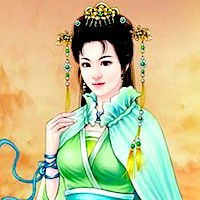
Jiǎndí 帝喾
2436 – 2386 BCE
“The emperor 's emperor,” patron of merchants
Wife of Yellow Emperor descendent Ku, mother of Qi, the Shang dynasty pre-founder; Jiandi headlines Chinese myths as well as historical accounts. In a myth, she miraculously becomes pregnant after swallowing a bird’s egg which leads to the birth of Qi and helps legitimize the founding of the Shang dynasty. She studied astronomy, good government, and influenced rule based on reason and creating more benefit for others. Described as “the emperor 's emperor,” she became a patron to merchants and her symbol was worn by businessmen for over 600 years.
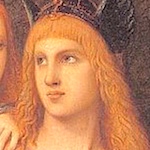
Hesiod
846 – 777 BCE
“History’s first economist”
Called “history’s first economist,” farm hand, singer, epic poet of the people; Hesiod used his poetry to paint and establish religious customs, Greek mythology, good farming practices, and a foundation for the poor to overturn the injustices and inequality of the kings and aristocracy. He protested against injustice, furthered the understanding of astronomy and time keeping, the economics of sea trade, and gave meaningfulness to creativity and hard work. While Homer extolled the hero, the rich and powerful; Hesiod championed the working classes and the common person (though not women).
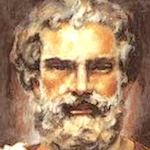
Thales of Miletus
624 – c. 546 BCE
“Father of Philosophy”
One of the “Seven Sages of Greece,” called the founder of Western Science and “Father of Philosophy,” Thales traveled to Egypt and studied with an Egyptian priest. He then returned to become ”the first Greek mathematician,” history’s first to use geometric deductive reasoning, to have a mathematical discovery attributed, and becoming the first to explain nature without myth or superstition, he set the direction for the golden age of Greek philosophy. Wanting to prove the practicality of philosophy and science, he applied it to business creating the first instance of using options and futures and to politics stopping a battle by predicting an eclipse.

Aspasia
470 – 400 BCE
A female Socrates and dramatic influence on Western culture
An hetaera, a highest class courtesan who – unlike most women of the time - was highly educated, independent, and able to participate in public life, Aspasia became Pericles’ mistress and a dramatic influence on Greek politics, philosophy and culture. Her home was an intellectual greenhouse attracting the greatest thinkers of the era and her teachings influenced Socrates, Plato, Xenohon, and many more. Intelligent, beautiful, charming, and called a "female Socrates;” she taught realization through self-knowledge and although a prostitute, her advise was so respected influential Athenians brought their wives to hear her.

Lais of Corinth
fl. 425 BCE
Described by Athenaeus as “superior in beauty to any woman that had ever been seen,” Lais typifies the Greek penchant for blending philosophy with prostitution. Although so desirable would-be clients would offer her all their wealth and possessions for a single night; she was so wealthy she would often refuse the most lavish offers. Her love of philosophy led her to offer herself to philosophers like Diogenes for a wee bit and gave the ugly Demosthenes great honor and fame by offering him 10,000 drachmas for an evening. She used her great wealth for the common good helping worthy people and building public structures and temples. Honored with a great tomb when she died, Lacroix described her as “the greatest conqueror that the Greeks have ever known.”
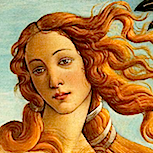
Phryne
371 - c.310 BCE
Model for the most famous sculptor of the time, Praxiteles and the first life-size statue of the nude female form; Phryne’s habit of letting down her hair and swimming naked in the sea during Elusion festivals inspired Apelles’ famous painting of Aphrodite as well as Botticelli's famous Birth of Venus. Her success as a hetaira courtesan made her so rich she was said to offer funding to rebuild the walls of Thebes destroyed by Alexander the Great if the words "Destroyed by Alexander, restored by Phryne the courtesan" were inscribed on them. Apparently too much to ask, this led to a charge of “impiety” at a trial where she was vindicated and found not guilty after baring her breasts.
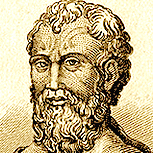
Zeno Ζήνων ὁ Κιτιεύς (of Citium)
334 – 262 BCE
Self-made wealthy merchant, shipwrecked and impoverished Phoenician, founder of Stoicism - a kind of reformation of Epicureanism that had corrupted from the pursuit of happiness to the pursuit of pleasure; Zeno emphasized virtue and goodness as essential to true happiness and peace of mind. An internationalist wanting to break down all national and racial barriers with no nations, classes, rich or poor, he defined vice as the rejection of reason making happiness impossible. Crediting Socrates, he defined the universe as god and acting on hope and fear, seeking pleasure or avoiding pain as the negative impulses causing suffering. His Stoic philosophy remained dominant for c. 800 years, influenced Seneca, Epictetus, and Marcus Aurelius. A major crater on the moon is named after him.

Leontium Λεόντιον (Leontion)
fl. 300 BCE
Philosopher, courtesan and mistress to Epicurus; Leontium had a child with him, helped develop his Epicurean philosophy, and wrote several books. Praised by Epicurus for the clarity of her philosophy and writings, she encouraged his policy of letting women and slaves attend his classes, and was a scandal to philosophers like Leontium and Pliny for - as a woman and prostitute - writing an erudite and devastating criticism of famous philosophers like Theophrastus. Barely mentioned in history and mainly by Epicurean critics who blamed her for her influence on ideas they disagreed with, Leontium helped create a more open and happy world.
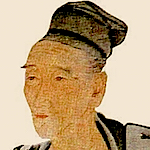
Layman Pang 龐居士
740 – 808 CE
Layman Pang 龐居士 Páng Jūshì, Hōkoji (740–808)
Successful merchant, family man, celebrated lay Buddhist; like Vimalakīrti and Marpa the translator, Pang exemplifies possibilities of the highest realization and enlightenment for people in everyday walks of life without needing to live in a monastery or remote cave, without being a yogi, monk, or nun. He did however worry about his success and wealth becoming an impediment to his spiritual path and at one point loaded all his riches in a boat that he sunk in a river. He and his family then traveled around China visiting great teachers and surviving by making and selling bamboo utensils. These travels and his words were immortalized in Blue Cliff Record koans as was his daughter Ling Zhao’s words, "Neither difficult nor easy, on the hundred grass tips, the great Masters' meaning" and "Not difficult, not easy—eating when hungry, sleeping when tired."

Yeshe Tsogyal ཡེ་ཤེས་མཚོ་རྒྱལ (Sky Dancer)
777 – 837 CE
Believed to be the reincarnation of the Buddha's own mother, Yeshe Tsogyal is the most famous of the enlightened women of Tibet and considered a female Buddha manifesting in the world in a way to teach an enlightened path in everyday life. She appeared as ordinary girl, princess, prostitute, business woman, and enlightened guru. Given from the king, Trisong Detsen’s harem to Padmasambhava who freed her, she helped establish Buddhism in Tibet and concealed terma for future generations.
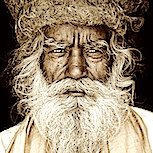
Tantipa ཏནྟི་པ། ("The Senile Weaver")
1st half of 9th century
Mahasiddha #13
When he was 89 years old, Tantipa’s wife died and he became increasingly decrepit and senile. Becoming more and more of a liability to his weaving business and an embarrassment to his family, they built a hidden-away hut for him so they and visitors wouldn’t have to see or hear him. A passing-through Mahasiddhia, Jalandhara gave him teachings and practices to prepare for death and after many years of his silent meditation practice, he overcame the debilities of old age, attained the highest realization, became involved again in his cultural world even stopping the practice of animal sacrifice in his district. His life symbolizes and represents both the internal and external potentials of old age, the inspiration that any condition is fertile ground for enlightenment.
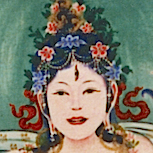
Dharima
10th century CE
Prostitute, consort of the famous Mahasiddha Tilopa, slave owner and student of Mahasiddha Luipa (probably a different person with same name and profession); Dharima and Tilopa started on this spiritual path together, practiced together for many years, and when enlightened taught together. They learned the "Illusory-body" yoga from Nagarjuna’s tradition, Dream yoga from Caryapa, Cakrasamvara and the Clear Light from Lavapa, and from the woman saint Subhagini, Candalini-yoga and the Hevajra tantra. They forged these 4 traditions into what became the Kagyu lineage of Mahamudra that continues powerfully today through teachers like Chogyam Trungpa and the Karmapas.
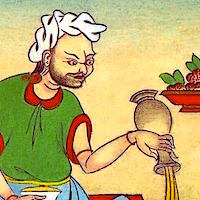
Dhilipa དྷི་ལི་པ། (“The Epicurean Merchant”)
10th century CE
Mahasiddha #62
Dhilipa had a sesame oil pressing business that did really well and made huge profits. He devoted this wealth to personal pleasure-seeking and is said to have had at each meal 84 main courses, 12 deserts, and 5 kinds of beverages prepared by the best chefs of the time. After one of these sumptuous banquets, a dharma teacher guest questioned him about how far his pleasure seeking was really taking him and pointed out that he could go on making more and more money but it wouldn’t bring him any more true happiness or realization. Like he extracted oil from sesame seeds, Dhilipa then extracted dualistic concepts from experience, realized the union of opposites, and burned the pure flame of awareness. Mahasiddha #62
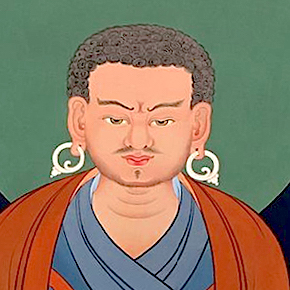
Marpa Lotsawa
1012 – 1097 CE
Founder of the Kagyu lineage of Tibetan Buddhism, teacher to the great Milarepa, businessman, farmer, family man and exemplar of enlightenment in everyday life; Marpa made many, perilous journeys to India and Nepal where he studied Vajrayana teachings, translating and bringing them back to Tibet. Wild, uncompromising, and outrageous; he flourished on physical dangers, psychological and spiritual challenge bringing “tasting the flavor of realization” into his translations that went to the depth of understanding rather than staying on the surface of the words.
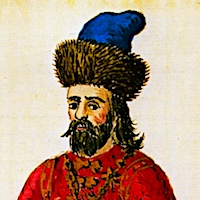
Marco Polo
1254 – 1324 CE
Epitome of adventurous business, political, and geographical exploration
Merchant par excellence, adventurous explorer, successful administrator for Kublai Khan in China, and popular author; Marco Polo became an inspiration for Christopher Columbus, the import-export global economy, and for most of the explorers who came after him. Setting off from Europe when only 17 years old, he spent 24 years in China becoming the governor of Hangzhou, returned to find his city of Venice at war with Genoa, tried to help but only ended up in jail where he described his travels to a cellmate who used them to write the famous book, Travels of Marco Polo. The difficulty and danger of travel in those days in illustrated by survival statistics: on their journey back from China, more than 600 people began with them but only 18 survived the 2-year journey to Hormuz. Later he expanded his business interests to become very wealthy, married and had three children. Frequently accused of exaggeration and fabrication, on his deathbed he responded to this criticism by saying, "I have not told half of what I saw."
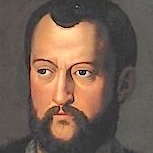
Cosimo de’ Medici
1389 – 1464 CE
Inheritor of a huge fortune; wandering bibliophile; owner of banks, businesses, farms, and factories; friend to cardinals and sultans alike; founder and “first among equals” leader of a political dynasty that helped begin and extend the Renaissance; Cosimo de’ Medici did what the rich need to do today: use their wealth to benefit the world instead of only themselves. In his own and other countries he strongly supported public works, charities, and libraries; funded the work of poets, artists, scholars and philosophers; established an academy for the study of Plato and launched the Renaissance revolution of philosophy over the Middle Ages’ scholasticism - the sense over the words.

Benjamin Franklin
1706 – 1790 CE
Beginning his adult life as a penniless runaway, Franklin became one of the world’s most admired people. He was a founding father, diplomat, scientist, philosopher, businessman, inventor, and the politician most responsible for winning the Revolutionary War. His inventions included the lightning rod, bifocals, the Franklin stove, and he helped start many new civic organizations including voluntary fire departments and paid police forces. He recreated the slogan/quote tradition of Aesop and Atisa that we continue in our “Comments” link.
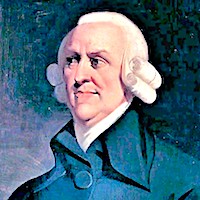
Adam Smith
1723 – 1790 CE
''The Father of Economic Capitalism"
Economic pioneer, moral philosopher, professor, and major influence on the Scottish Enlightenment; Adam Smith helped create the "cult of the free market" when he published The Wealth of Nations—one of the or the most influential books on economic theory ever written. Unlike many famous and influential books that were virtually unknown during the author's life, the Wealth of Nations went through 5 editions while Smith was still living. A close friend and advisor to David Hume, Smith also had frequent conversations with Benjamin Franklin, Gibbon, Burke, and knew Voltaire. He put his economic theories into practice converting his home town of Glasgow's business leaders to his policy of free trade. Kidnapped by gypsies when young, Smith refused the expected ordination after 6 years studying at Oxford, and turned conventional morality upside down by proclaiming being rich as the same thing as having integrity.
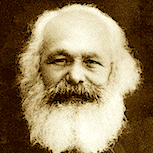
Karl Marx
1818 – 1883 CE
A journalist, philosopher, scientist, and “true founder of modern sociology” and social science; both critics and followers rate Marx as one of the most influential people in all history with a profound impact on world politics, intellectual thought, sociology and economics. A philosopher for the poor and middle classes, he described the economic conflicts of interest that alienate and polarize society between the working classes and the plutocracy. Distorted, corrupted and used by Lenin, Trotsky, Mao, and many other totalitarians; appreciated, developed, and applied by progressive political parties, labour unions, intellectuals, and artists; he brought the scientific method into politics and social theory as well as a powerful alternative to the dehumanizing aspects of capitalistic industrialization. Though questionable in many ways, his work produced a practical and powerful balancing of economic extremes, the exploitation of labor, and the corruption of politicians by the rich. Though more known for his critiques of capitalism, he also appreciated its positive impact on increased productivity, technological progress, and scientific breakthroughs.
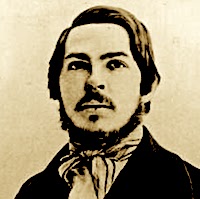
Friedrich Engels
1820 – 1895 CE
Businessman-philosopher, political theorist
Co-author of The Communist Manifesto, polyglot speaking 9 languages, businessman, poet, journalist, philosopher; Engels grew up in a wealthy family that owned and operated large factories. He saw the horrible, slave-like working conditions, long hours, environmental degradations, and child labor from a very clear, first-hand perspective. He financially supported Karl Marx, edited his writings, and wrote influential books of his own. Together they organized workers, envisioned egalitarian societies, and developed communist theory. In spite of his dedicated, political activism, in order to finance Marx’s work, he reengages in many successful business ventures. Risking imprisonment, hiding from police, and participating in armed rebellions; his efforts to create a more equitable world went far beyond theory and speculation. Although claimed as inspirational founder of Stalin’s Soviet Union, his emphasis on individuality and the appreciation of literature, music and culture set his true philosophy in direct odds against Stalin. While most of the credit for Marxist theory went to Marx, Engels—behind the scenes editing, filling in gaps, and amplifying—may have had a more important influence. He lived with the fierce, Irish radical Mary Burns for over 20 years until her death; but, because they both considered state and church-controlled marriage a form of oppression, never married.

Mark Twain (Samuel Langhorne Clemens)
1835 – 1910 CE
America’s most famous author
Riverboat captain, adventurer, bankrupted businessman, inventor, and America’s most famous author; Mark Twain, with his wit, wisdom, insight, and humor influenced and continues to positively influence the world. A strong supporter of women's, religious, racial, and labor rights; he wrote scathing indictments on war, patriotic, and religious bigotry and published new work in 3 different centuries. Though disliked by his wife Livy, his book The Adventures of Huckleberry Finn ranks among history’s all time best. Ernest Hemingway said, ”All modern American literature comes from one book by Mark Twain called Huckleberry Finn.”
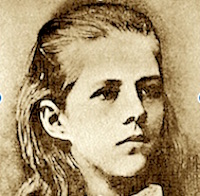
Anna Grigoryevna Dostoyevskaya ригорьевна Достоевская
1846 – 1918 CE
The woman behind the man and clear example of “better half,” Dostoyevskaya started helping Dostoyevsky as a 19-year old secretary when he was 44 and soon became not only his devoted and energetic wife; but also, his very capable business partner who helped him through extreme poverty, illness, and gambling addiction that at one point lost not all their money but her clothing as well. Not remembered very well by history but essential to Dostoyevsky’s success, she took charge of all their financial issues, publishing and business affairs, made him Russia’s first self-publish author liberating him from a lifetime of poverty and debt. To disprove one of his disparaging remarks about women, she became one of the first female Russian philatelists and worked on her collection for over 50 years while she wrote two biographies; saved his manuscripts, letters, and photographs; and set up a display of them in a State Historical Museum.
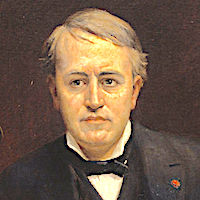
Thomas Edison
1847 – 1931 CE
America's greatest inventor
“America's greatest inventor,” businessman, and entrepreneur; Edison set up the world’s first industrial research laboratory, first film studio, and held in his name over 1,100 US and foreign patents in many fields including electric power, communications, and motion pictures (his film studio made almost 1,200 films.). Some of his most influential inventions include the light bulb, phonograph, motion picture camera, the fluoroscope, the tasimeter, and the nickel-iron-battery. Henry Ford was a neighbor and employee who Edison helped with his business ventures. A victim of nepotistic seductions, Edison had to take his son to court for using their family name to promote scams, snake-oil products, and fraudulent ventures. He joined Blavatsky’s Theosophical Society, became a strict vegetarian, and promoted nonviolence.
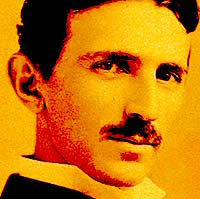
Nikola Tesla Никола Тесла
1856 – 1943 CE
Nikola Tesla, Никола Тесла (1856 – 1943)
Prototype of the “mad scientist,” engineer, futurist, poet, philosopher, linguist, humanist, close friend of Mark Twain, and son of a Serbian Orthodox priest; Tesla and his development of the induction motor helped tip the scale in the “War of Currents,” the AC vs. DC power struggle between Edison and Westinghouse. This made him instantly very rich but he soon spent everything on developing new inventions and he often lived in hotels sneaking away without paying the bills. He invented systems for wireless lighting which didn’t make money but created the foundation for wireless applications used today. He spoke 8 languages, invented radio remote control, a steam-powered oscillating generator, helped design the Niagara falls power system, took the first X-ray image, and received almost 300 patents in 26 countries.
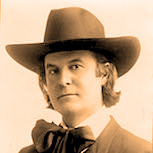
Elbert Hubbard
1856 – 1915 CE
Traveling soap company salesman who invented the “leave on trial” technique, philosopher, artist, trouble-maker and writer; Hubbard identified with the Thoreau, Whitman, Tolstoy lineage and distilled this philosophy in his famous essay, A Message to Garcia. Often mocked for "selling out,” convicted for circulating "obscene" material but pardoned by Woodrow Wilson; he seemed to live his famous adage, “When life gives you lemons, make lemonade.” He blended philosophy and business, idealism and practicality stretching into the wisdom beyond words. Survivor of the Titanic sinking, he died along with his wife in stoic acceptance on a different ship sunk by a German submarine.
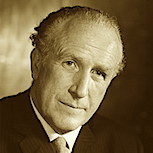
Arthur Desmond
1859 – 1929 CE
Arthur Desmond (c. 1859 – 1929), aka Arthur Uing, Ragnar Redbeard, Richard Thurland, Desmond Dilg, Gavin Gowrie
Bank-bashing heroic reformer, “The Poet of Revolution,” author, and politician; Desmond started a political organization dedicated to “emancipation from poverty, competitive commercialism, industrial wage slavery, tyrannical authority, and mental bondage." Like Machiavelli and his satirical book The Prince, Desmond was slandered by the rich and powerful plutocrats of his time as an immoral, satanic figure, advocating Social Darwinism, racism, and fascism. His book, Might Is Right, however, was called by fellow labor movement collaborators, “one of the greatest books ever written." He promoted land reform, the nationalization of large estates and banks, single taxation and called bank directors "scoundrels", large estate owners "blood-sucking leeches" and the local press as "hirelings of monopoly.”
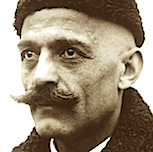
G. I. Gurdjieff
1866 – 1949 CE
Philosopher, mystic, composer, ragged wanderer, successful entrepreneur, and deep spiritual teacher; Gurdjieff emphasized the hypnotic, dull, and asleep quality of our lives and - like the Buddha and many others - that we can “wake up.” His intense curiosity led him on extensive travels through Tibet, Russia, India, Iran, Egypt, North America and throughout Central Asia in a search for "seekers of truth,” people like we include on these lists. He felt that our religious and philosophical traditions have migrated from understanding the “sense” to mindless belief and adherence to the forms, to only the “words.” He sought to revitalize ancient wisdom traditions (Socratic, Stoic, Vedic, Buddhist) making them alive and relevant to contemporary life. His popular teachings on the enneagram remain influential today.
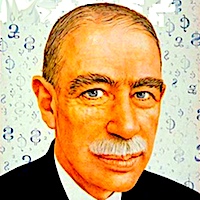
John Maynard Keynes
1883 – 1946 CE
Revolutionary economist credited with saving capitalism
One of the most influential economists of all time, founder of modern macroeconomic theory, most effective strategist in ending the great depression, and leading representative of modern liberalism; Keynes became one of the most important and influential thinkers of the 20th century. Promoting the—at the time—radical idea that governments should spend money they don't have may, he helped jump-start the world’s economies out of depression and into history’s most affluent periods. Challenging the prevalent economic theories of Adam Smith, most of the developed world adopted his theories, government policy focused on demand instead of supply, prosperity spread. Attacked by monetarists like Milton Friedman in the 1970’s his recommended policies fell from favor which led to the the 2007-8 financial crisis until they were re-adopted.
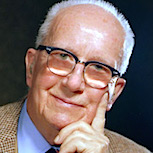
Buckminster Fuller
1895 – 1983 CE
“One of the greatest minds of our times," pioneering solution-solver doing "more with less,” poet, engineering and inventor-genius with 25 patents; Bucky developed a comprehensive and practical perspective on ways to solve world problems. Expelled from Harvard in 1913 and also in 1915 (he later received 47 honorary doctorate degrees) and on the verge of suicide in 1927 when his construction company failed, he went into a 2-year reclusive retreat emerging as one of our greatest global thinkers. His inventions include a winch to rescue boats, a way to better produce concrete buildings, the World Game, the Dymaxion™ house, car, bathroom, grain bin, and many as well as the geodesic dome with now more than 300,000 in use everywhere from African villages to remote radar stations to children’s playgrounds. Advocate of "a one-town world,” seeing ourselves on "spaceship earth,” and the world as one living system; he inspired tens of thousands of sustainability pioneers.

Nisargadatta Maharaj
1897 – 1981 CE
Householder guru of non-duality
Nisargadatta Maharaj (1897 – 1981)
An Indian Guru of nondualism from a householder lineage; Nasargadatta began in life by opening a small store that mainly sold beedis (leaf-rolled cigarettes). He soon expanded this into a string of eight retail shops, married, and had 4 children. After meeting a guru and practicing a sadhana, he traveled across India alone until he realized that "nothing was wrong anymore,” returned home and stayed there maintaining his business and teaching. His exposure greatly expanded when North American and European followers discovered him but he remained unseduced by materialism and continued living in the most simple and unassuming way.

Arnold Glasow
1905 – 1998 CE
Business with humor

E. F. Schumacher
1911 – 1977 CE
The “People's Economist”
While working in Burma during the mid ‘50s, Schumacher developed a set of principles he called “buddhist economics” — emphasizing the idea that people need good work for proper human development. Traveling through many Third World countries, he helped governments create self-reliant economies based on local resources and needs. A pioneer and instigator in creating a philosophy of “appropriate technology,” and known as the “People's Economist,” his economic theory based on wisdom instead of only materialism, became one of the most serious alternatives to the dominant economic theories based on Adam Smith and John Maynard Keynes.
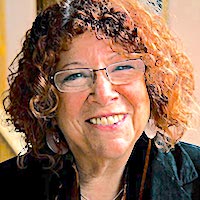
Meg Wheatley
1944 CE –
Bringing ancient wisdom into the modern world.
Global citizen, author, and management consultant who brought contemplation, systems thinking, chaos theory, and a natural science approach into the business world; Wheatley has had a powerful influence over organizations from schools to churches, from non-profits to governments, from major corporation to small, developing country start-ups. Working on every inhabited continent, more than 40 countries, and with every type of organization; she’s helped and inspired fruitful changes creating better organizations, societies, and work-place interactions. A student of Pema Chödrön and Namkhai Norbu, she’s one of the most interesting examples of bringing ancient wisdom into the modern world.
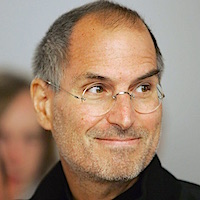
Steve Jobs
1955 – 2011 CE
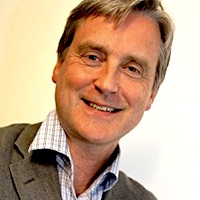
Paul Seabright
1958 CE –
Author and British Professor of Economics
Each generation needs a champion of ancient wisdom, a translator of insight into modern terms, and someone to continue the axial-age discussions. Paul Seabright looks likely to evolve in these directions. A philosopher and professor of economics in France, India, and the UK; he consults for governments, corporations, and organizations like the World Bank, the United Nations, and the European Commission. His current research focuses on competition policy issues, network economics, and behavioral economics—the integration of evolutionary biology into the development of economic institutions.

Simon Sinek
1973 CE –
Author of 5 books, motivational speaker, and highly respected business consultant; one of his TED talks became one of YouTube's all time most popular and his books have won best-selling status on both Wall Street Journal and The New York Times lists. Highly critical of the "trickle down" economic theory, he promotes instead the creation of safe, supporting, fulfilling, and inspiring work environments. His childhood in South Africa, London and Hong Kong gave him a more realistic, global perspective that easily goes far beyond the more narrow and nationalistic understandings of most usa-based business consultants.
Related Sources (4 sources)
Wealth of Nations by Adam Smith
Leaders Eat Last by Simon Sinek
Quotes about the Business Lineage (16 quotes)

“In the 1950s, a typical CEO made 20 times the salary of his or her average worker. Last year, CEO pay at an S&P 500 Index firm soared to an average of 361 times more than the average rank-and-file worker, or pay of $13,940,000 a year ($13,940,000 divided by 261 = $53,410 per day).”
Comments: Click to comment

“Merchants were the great men of the earth, because all the nations were deceived by their sorcery.”
Comments: Click to comment

“Merchants are the biggest fools of all—they will lie, perjure themselves, steal, cheat, and mislead the public. Nevertheless they are highly respected because of their money.”
Comments: Click to comment

“To business that we love, we rise betimes, and go to it with delight.”
Comments: Click to comment

“Our merchants and master-manufacturers complain much of the bad effects of high wages in raising the price, and thereby lessening the sale of their goods both at home and abroad. They say nothing concerning the bad effects of high profits. They are silent with regard to the pernicious effects of their own gains. They complain only of those of other people.”
Comments: Click to comment

“A merchant, it has been said very properly, is not necessarily the citizen of any particular country.”
Comments: Click to comment

“Wealth is nowhere more at home than in the merchant class because merchants look upon money only as a means of further gain, just as a workman regards his tools so they try to preserve and increase it by using it.”
Comments: Click to comment
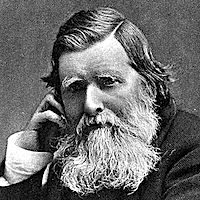
“In a community regulated by laws of demand and supply... those who become rich are—generally speaking—industrious, resolute, proud, covetous, prompt, methodical, sensible, unimaginative, insensitive, and ignorant.”
Comments: Click to comment

“a successful business man attaining all his desires regardless of death and the devil, and then withdrawing from activity at the crowning point of his success... changes him into a querulous old woman, fastens him to his bed, and thus finally destroys him.”
Comments: Click to comment

“It is in exchanging the gifts of the earth that you shall find abundance and be satisfied - but only if in love and kindly justice or it will only lead some to greed and others to hunger”
Comments: Click to comment

“Our industrial leaders should welcome and help to implement the welfare state as a humane mitigation of the painful inequality of human fortune, and a saving substitute from social turmoil and dictatorial repression.”
Comments: Click to comment
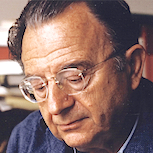
“Man does not only sell commodities, he sells himself and feels himself to be a commodity.”
Comments: Click to comment

“It might be said that it is the ideal of the employer to have production without employees and the ideal of the employee is to have income without work.”
Comments: Click to comment
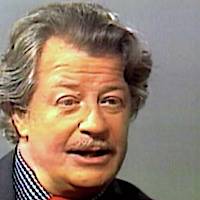
“Only merchants have money to waste, and what are they but parasites who create nothing, grow nothing, make nothing but feed off another's labor?”
Comments: Click to comment
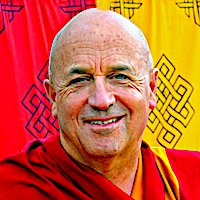
“In the people who run such businesses we find only hypocrisy, profiteering, and disinformation… a perfect example of institutionalized selfishness.”
Comments: Click to comment

Comments (0)